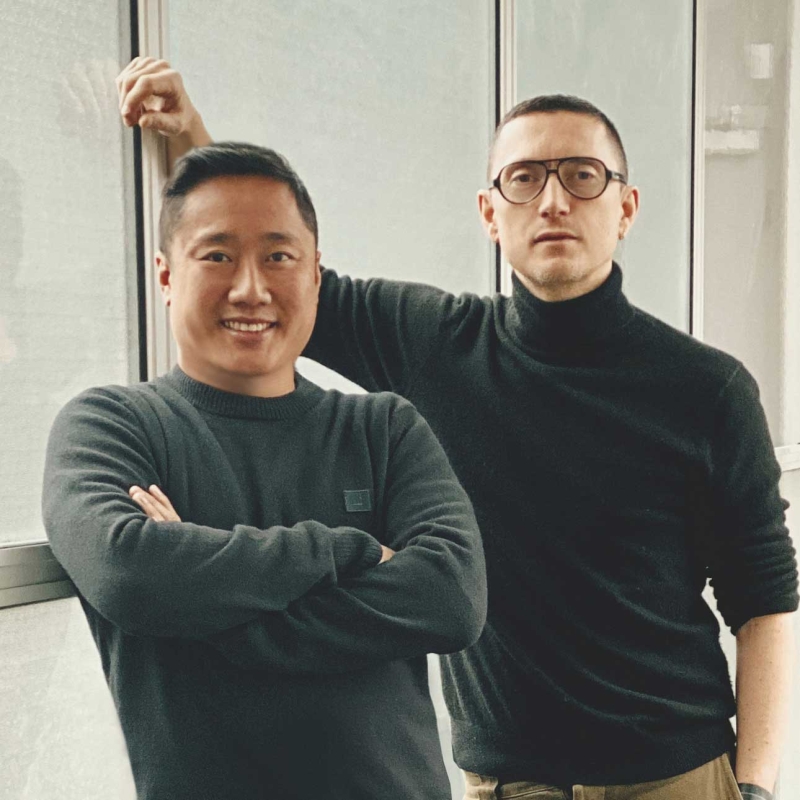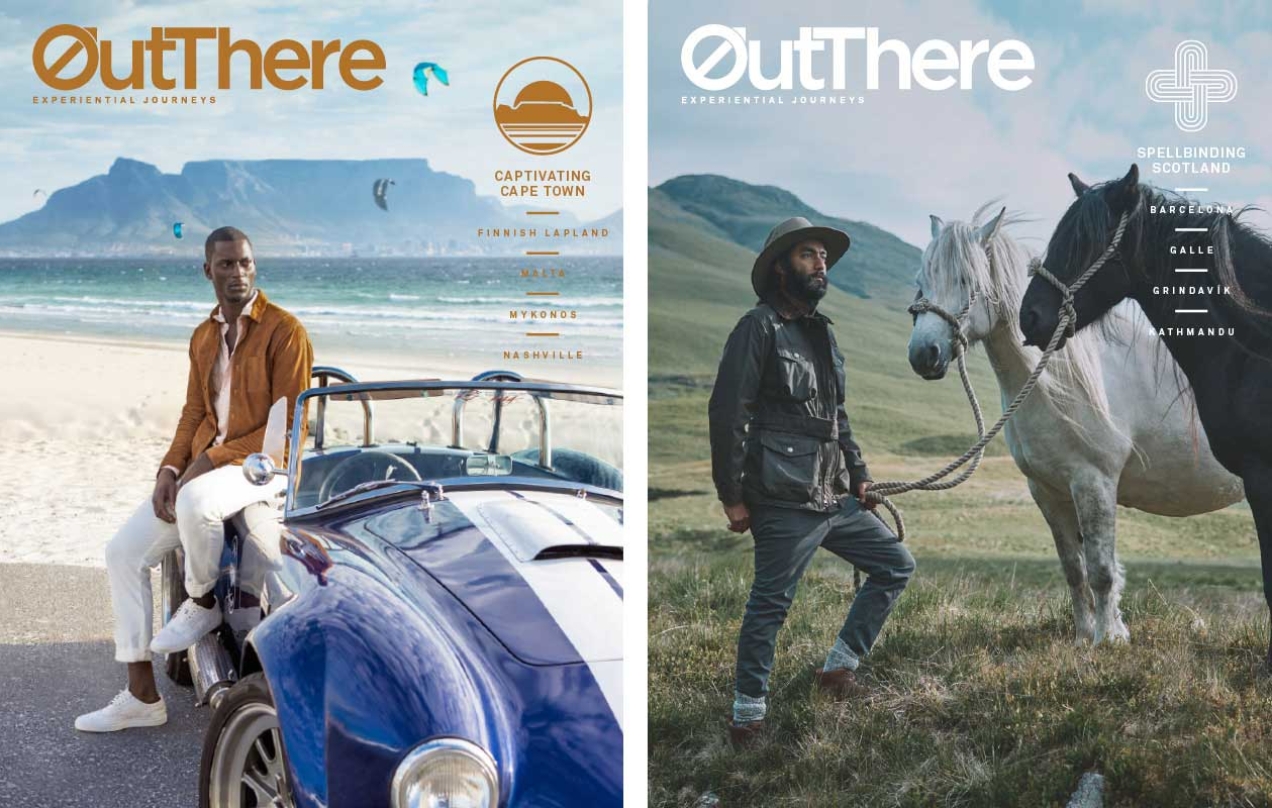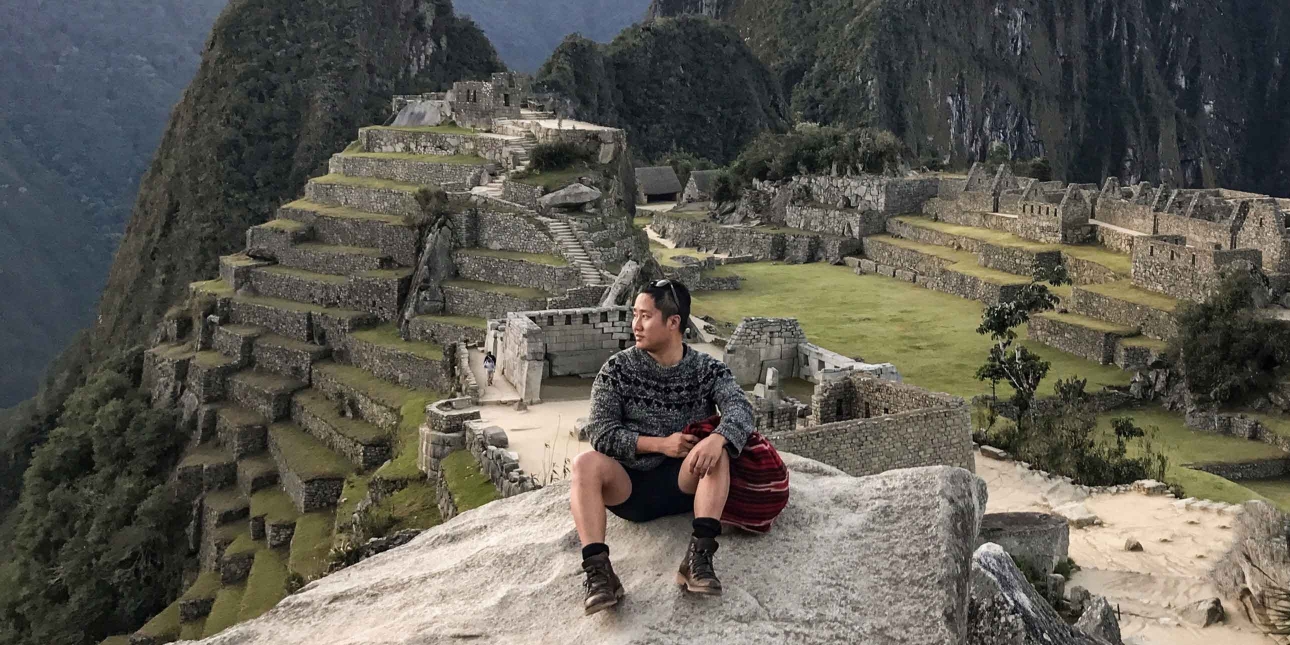Meet Uwern Jong, Editor-in-Chief, OutThere
When Uwern Jong co-founded luxury travel magazine OutThere in 2010, people were cynical that a print publication targeting the LGBTQ+ market would work. Thirteen years on, he's proved them wrong, with the magazine now selling 41,000 an issue, driving a more inclusive approach to tourism, and providing "in-depth, inclusive, first-person essays on the world's most amazing experiences" for luxury travellers of all backgrounds who still feel marginalised by mainstream media…
Uwern Jong is founder and ‘Experientialist®-in-Chief' at luxury travel magazine and media brand OutThere. Having begun his career in marketing working with brands such as Guinness and Honda, Jong co-founded the title "on a kitchen table in Hackney" with ex-Esquire creative director Martin Perry in 2010, aiming to inspire and motivate LGBTQ+ travellers.
Since then the brand has expanded to comprise a quarterly printed magazine, "rooted in diversity, discovery and discernment", a website, The Experientialist® Awards, a not-for-profit awards programme that platforms travel companies working in community, sustainability and conservation, and OutThere/Studio, which develops content and provides inclusive, creative brand-activation services for travel and tourism brands, ranging from commercial campaigns for the Tourism Authority of Thailand to Belmond. It also provides diversity training and branding workshops to help brands think about inclusion as part of their mainstream strategy.
I first conceived the idea of publishing a title for LGBTQ+ people during the late-noughties, when I was working in marketing. I realised many of my brands were talking to one person - a white, heterosexual one. They weren't talking to gay, Asian or intersectional people, like me. Particularly in travel, it was all honeymoons and family holidays and in men's media, busty girls and fast cars. Even in LGBTQ+ media, there was a way we were expected to behave: liking drag queens and taking holidays to Mykonos and Gran Canaria. At worst, LGBTQ+ travellers were even seen as ‘sex tourists'. Then even in LGBTQ+ media, they were telling us to live our lives in a very stereotypical way.
It made me think that there was a gap to service in the market, because there were so many people who travelled like Martin [Perry] and I, but nobody was talking to us.
The Absolut Vodka Pride campaign of 2008 was a major tipping-point in inclusive campaigns. They went all out for the LGBTQ+ community with rainbow flag bottles and sponsoring Prides around the world. In PR, it often takes a visionary to pave the way, and then others follow.
Meeting a ‘guardian angel' at sunrise on Angkor Wat encouraged me to start OutThere. When Martin approached me with the idea of launching OutThere, there was a lot to think about. One morning on my travels, I woke up at 3am to climb the steep steps of Angkor Wat hoping to see the sunrise. But I got to the top and found a Canadian woman with crutches had beaten me to it! It transpired she was dying from cancer, and this journey was her last. She told me, "If there's one thing you want to do in your life, do it, because there might never be another chance!" As soon as we came back home, we got straight to work.
"We wanted OutThere to be what magazines started out being: an immersive experience, full of rich stories and pages of luscious photography"

Stressing the spending power of the LGBTQ+ community was a key way to win the hearts and minds of PRs and advertisers. When we launched, I can't begin to tell you the number of pushbacks we had. PRs would tell us, "You're not strategically part of our audience". So, we had to stress the economic benefit: LGBTQ+ people in general earn more than average, have double income with no kids (although that's changing now), a higher propensity for travel, fashion and luxury goods and were trendsetters (we still are!). We had to describe it like that for people to understand, rather than just emphasising the social good.
When we launched OutThere in 2010, everybody was talking about the death of print… It seemed like a stupid idea to launch a magazine in a digital age. But at the time, many magazines had got to a point where they were just disposable: you'd buy them for 50p and throw them out after. We wanted OutThere to be what magazines started out being: an immersive experience, full of rich stories and pages of luscious photography; a compendium that people could take the time to read, savour and even collect. We often call ourselves a "coffee table book".
OutThere has a strict ‘no listicles' rule. We believe in the power of long copy; it's not about clickbait and ‘Five things you can do in London at Christmas' style stories.
Around 40% of our readers aren't LGBTQ+. When we discovered this, we at first "wondered what we did wrong?" But it transpired that one demographic was behind it: female solo travellers. They travel in exactly the same way LGBTQ+ travellers do: they want safety, but they also want to be celebrated as the person paying for the holiday. They didn't want hotels expecting that they'd have a husband and asking where they were. It made us realise that there are lots of people out there who don't conform to the stories told in mainstream media.
"PRs need to be far more aware of unconscious bias in their press releases and storytelling."
OutThere does brand partnerships and creates content for brands. ‘Go Thai. Be Free' came about because the Tourism Authority of Thailand identified the LGBTQ+ market as an audience they needed to work with. We create the campaign, tell their stories and do their social media. We also work with many other tourism boards, including Visit Stockholm, but also travel brands like Four Seasons, and more.
There's an old business saying, "Turnover is vanity, engagement is sanity". And OutThere has pretty impressive statistics: 41,000 largely-subscription based readership, 260,000 monthly unique users online, and 1.8 million visits to our website every month. Yet staying small has allowed us to grow. If we set out to make a pile of money and sell the business in year five, it would have been a different story. It's taken us time to achieve the goodwill we have in our business today.

PRs need to be far more aware of unconscious bias in their press releases and story-telling. Language is still very gendered and not inclusive. I still get press releases about "brides and grooms" when talking about weddings or honeymoons or ones that say things like "When your husband is playing golf, you can visit the spa". See also descriptions such as "colonial splendour" and the "golden age of travel". There was nothing splendid about the colonialism and this so-called ‘golden age of travel' would have seen people like me serving the gin and tonics!
"We can be a force for good, teaching inclusion without being preachy."
OutThere believes in ‘boundless travel' - even to Qatar. We'll travel anywhere, because we believe in the power of the visibility of our audience. Of course we'll prioritise the most welcoming of destinations first, but if we don't travel to places like the Maldives, people won't know there's a different perspective and things will never change.
OutThere has had to think about not being tone-deaf, as a luxury magazine during the cost-of-living crisis. However, luxury doesn't always mean affluence. The wealthy will carry on travelling and as a luxury magazine we'll lean into that affluence, but we're also trying to find a way of telling stories that deliver on the ideas of ‘value' and ‘generousity', whether it's by encouraging people to ‘stay longer', or advising readers on how the same amount of money can get them a better holiday experience.
When I left the marketing world, I said I never want to do marketing again. But working with brands in partnerships feels so natural. I believe we can be a force for good, teaching inclusion without being preachy… We can create diverse content with authenticity and personalisation. We need to make sure whoever's reading feels welcome and that they belong.
https://www.linkedin.com/in/uwernjong/



